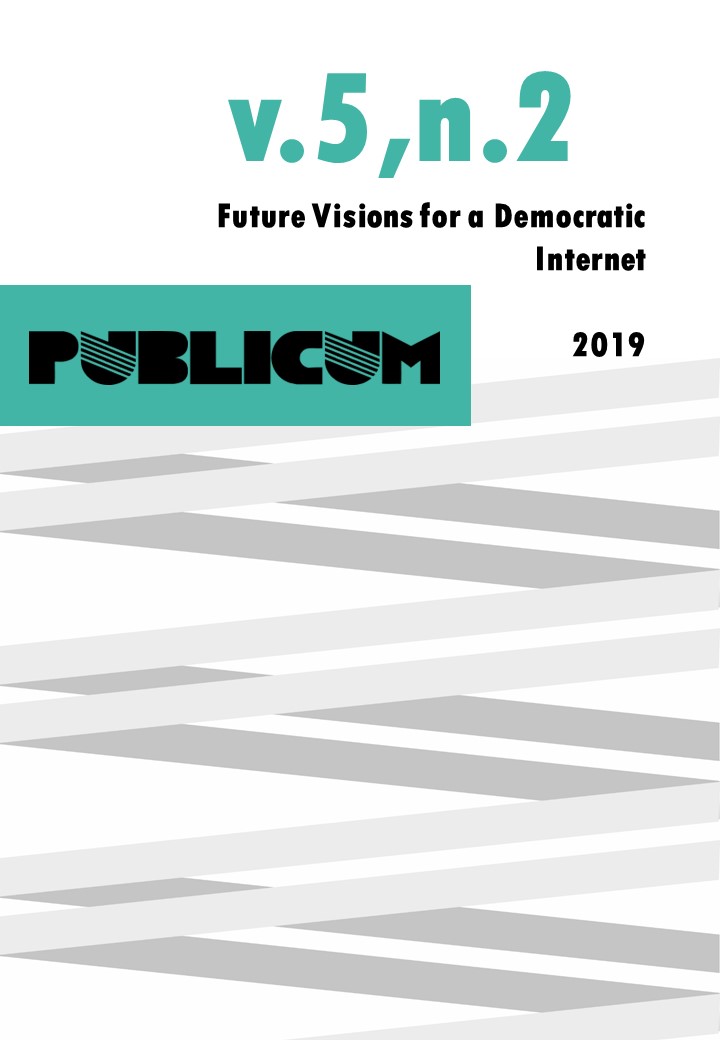A democratic dénouement? The European Union vs terrorist content online | Um desfecho democrático? A União Europeia vs conteúdo terrorista online
DOI:
https://doi.org/10.12957/publicum.2019.47209Keywords:
Terrorist content, Service provider, Provider responsability. | Conteúdo terrorista, Provedor de serviço, Responsabilidade do provedor..Abstract
Abstract: This paper explores the manifold aspects of the draft Terrorist Content Online (‘TCO’) Regulation which are of clear import for the democratic future of the internet insofar as they will reshape the boundaries of what is acceptable behavior online and set out tools and procedures for deciding what must be (potentially, pre-emptively) excised from the exchanges taking place there. The piece places particular emphasis on the proposal’s ramifications for legal certainty and freedom of expression in cyberspace. In doing so, it aims to raise the most salient policy concerns, legal difficulties and technological quandaries which ripple out from the EU legislator’s laudable goal of tackling violent and terrorist content online. The article is structured as follows: after a discussion of the foundational concept of “terrorist content” which applies across the board in the draft text (II), we distinguish its headline provisions tightening up service providers’ compliance with orders to remove or disable access to terrorist content (III) from those aspects of the proposal which aim to responsibilise providers to act unassisted against terrorist content, including through the hotly-debated use of proactive measures (IV). A few concluding remarks on the future direction of this live file are offered to close (V).
Resumo: Este artigo explora os múltiplos aspectos do projeto de Regulamento de Conteúdo Terrorista Online ('TCO'), que são de clara importância para o futuro democrático da Internet, na medida em que reformularão os limites do comportamento aceitável online e definirão ferramentas e procedimentos para decidir o que deve ser (potencialmente, preventivamente) excluído das trocas que ocorrem ali. O estudo coloca ênfase particular nas implicações da proposta para segurança jurídica e liberdade de expressão no ciberespaço. Ao fazê-lo, visa levantar as mais importantes preocupações políticas, dificuldades jurídicas e dilemas tecnológicos que surgem do louvável objetivo do legislador da União Europeia de combater conteúdos violentos e terroristas online. O artigo está estruturado da seguinte forma: após uma discussão do conceito fundamental de “conteúdo terrorista” que se aplica de forma geral no texto da minuta (II), distinguimos suas disposições principais que reforçam a conformidade dos provedores de serviços com as ordens para remover ou desativar o acesso ao conteúdo terrorista (III) dos aspectos da proposta que visam responsabilizar os provedores a agir autonomamente contra conteúdo terrorista, inclusive por meio do controverso uso de medidas proativas (IV). Algumas observações finais sobre a direção futura deste arquivo ao vivo são oferecidas na conclusão (V).
Downloads
Published
How to Cite
Issue
Section
License
The author(s) of the paper declare(s) to know and agree to the following rules:
1) The author(s) undertook the work presented to the journal, being entirely responsible for the ideas and concepts therein transmitted, which do not necessarily correspond to the point of view of Publicum’s Editors.
2) The ethical principles alluded to in the evaluation policy of the journal [RDN1] were met in the conduction of the work presented to submission.
3) The author(s) assume(s) authorship and responsibility for their work, declaring that it does not infringe any third party intellectual property rights.
4) The author(s) take(s) full responsibility for moral or patrimonial damages that the distribution of the work may generate to third parties.
5) The author(s) grant(s) the journal the rights to reproduce, edit and first publish the paper in any media – in particular in digital form – in an electronic archive on the Internet.
6) The author(s) confer(s) the right to the editors to modify the text submitted, without prejudice of its contents, when necessary to standardize the presentation of the works and to meet the norms of the journals’ own edition.
7) The author(s) agree(s) to the final form of the paper approved by the journal.
8) The author(s) authorize(s) the disclosure of the paper in the channels of communication of the Faculty of Law of UERJ.
9) The author(s) agree(s) with the reproduction of short extracts from the paper in other UERJ publications.
10) The author(s) recognize(s) that, through the abovementioned assignment and authorizations, he/she/they will not receive payment under any modality, meaning these will have the nature of scientific collaboration.
11) The author(s) is(are) aware that publication of the work may be refused if it is not considered appropriate, for any reason, whatsoever, and such refusal does not create responsibility and/or burdens of any kind to the journal or UERJ.
[RDN1]Ver COPE.

Publicum está licenciado com uma Licença Creative Commons Atribuição-NãoComercial 4.0 Internacional.

